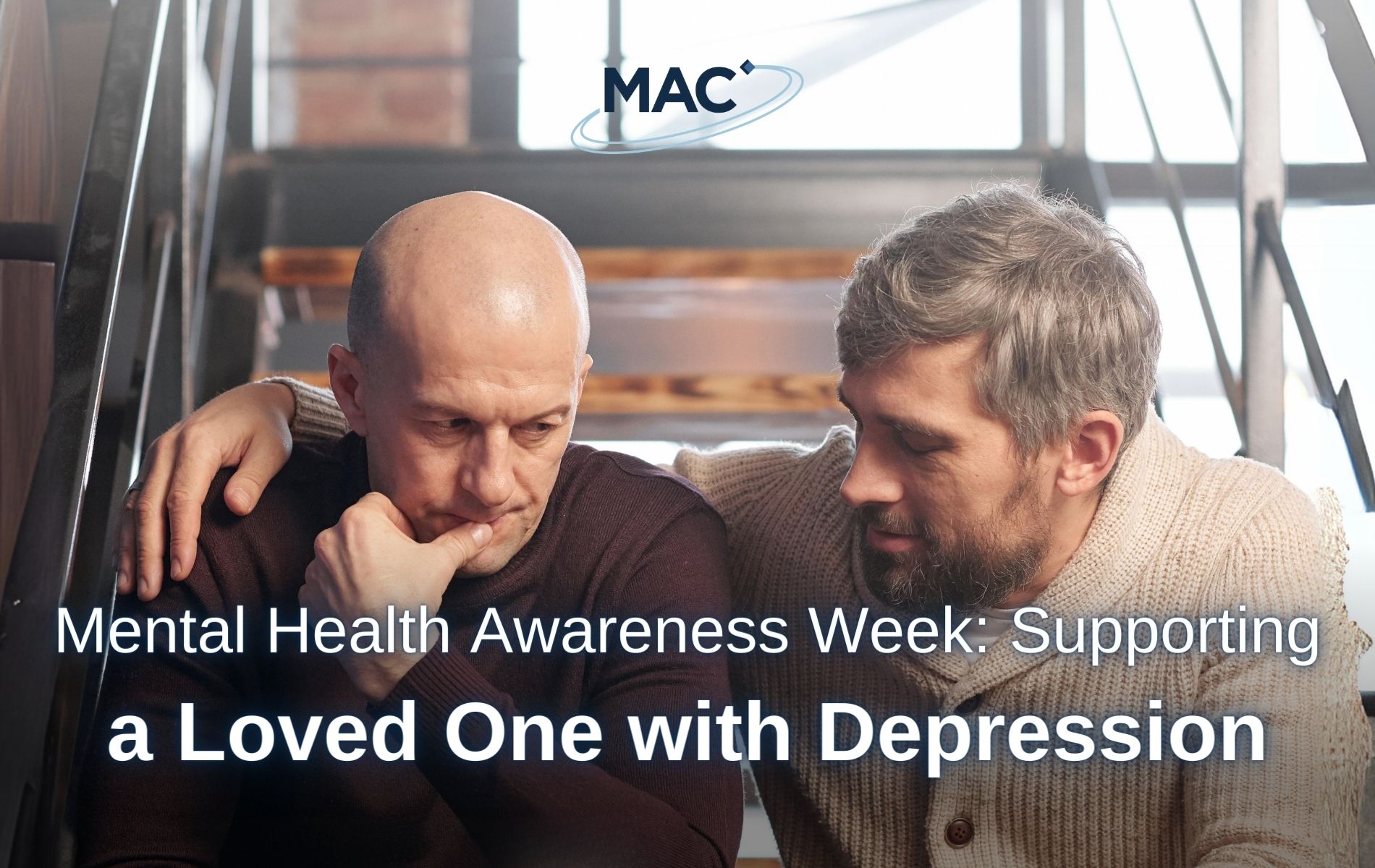Mental Health Awareness Week takes place between the 13th and 19th May, we want to use this opportunity to delve deeper into the hidden struggles that often lie beneath the surface.
Many living with depression often mask their symptoms, evading detection, even by those closest to them. But by fostering open communication and creating spaces of empathy and understanding, we can begin to unmask the hidden pain that so many endure.
In a recent campaign by Norwich City Football Club, the hidden struggle of depression is brought to light; you can watch the video below. This campaign highlights an important point; that depression isn’t just “feeling blue” and can affect people in different ways.
What is Depression?
Depression, sometimes referred to as Major Depressive Disorder (MDD), is when a person experiences intense and overwhelming feelings of sadness and hopelessness. Around 1 in 6 adults in the UK stated they have experienced moderate to severe depressive symptoms1.
Tips for Supporting Friends and Family
Here are some tips to help friends and family open up about their struggles with depression:
- Create a Safe and Non-Judgemental Environment – One of the most crucial steps in encouraging loved ones to open up about their struggles is to create a safe and non-judgmental space. This is particularly important for men who may be living with depression due to the stigma surrounding men’s mental health; in fact, a recent survey revealed that 40% of men won’t talk to anyone about their mental health2.
Assure them that they can speak freely without fear of criticism or condemnation. Practice active listening and validate their feelings, letting them know that their experiences are valid and worthy of attention.
- Initiate Gentle Conversations – Broaching the topic of mental health can be daunting, but it’s essential to let your loved ones know that you’re there to support them. Start by expressing your concern in a gentle and non-intrusive manner. You might say something like, “I’ve noticed that you seem to be going through a tough time lately. I’m here for you if you ever want to talk”.
By improving awareness around how to approach open conversation about mental health, we can allow individuals struggling in silence to feel more comfortable about opening up. A recent survey by the mental health charity Mind found that almost a third of their respondents said more knowledge and understanding around mental health would make it easier to talk about mental health3.
- Be Patient and Persistent – Opening up about depression can be a gradual process. Understand that your loved ones may not feel comfortable sharing their struggles right away, and that’s okay. Around 90% of 16 to 24-year-olds in the UK say they would not be honest about mental health struggles if asked about them by loved ones, with the most common reason being that they don’t want to burden people4. Reassure them that you’re there whenever they’re ready to talk and continue to check in on them regularly.
- Educate Yourself About Depression – Take the time to educate yourself about depression and its symptoms. By understanding the condition better, you’ll be better equipped to recognise the signs in your loved ones and offer appropriate support. Be mindful, however, not to diagnose or minimise their experiences—leave that to trained professionals.
- Encourage Professional Help – While your support is invaluable, it’s essential to encourage your loved ones to seek professional help if they’re struggling with depression. Offer to help them find a therapist or counsellor and reassure them that there’s no shame in reaching out for professional support. Charities such as Andy’s Man Club run regular sessions for people struggling with their mental health to open up and share with others. Let them know that they don’t have to face their struggles alone.
Living with Depression?
Here at MAC Clinical Research, we want to improve quality of life for those living with depression by finding potential new treatment options through clinical trials.
If you or a loved one is living with depression, you could help researchers investigate potential new treatments. MAC are running clinical trials at their clinics across England and, if eligible, you could receive up to £3,263. Eligible participants will also receive travel expenses and a full health check-up.
To find out more and register your interest, visit MAC’s current trials page webpage.
1 Office for National Statistics – Cost of living and depression in adults, Great Britain: 29 September to 23 October 2022
2 The Priory Group – Men’s mental health: 40% of men won’t talk to anyone about their mental health
4 Rethink Mental Illness – Time to Change: Nearly 9 in 10 young people would tell friends and family they are ‘fine’ even if struggling with a mental health problem




